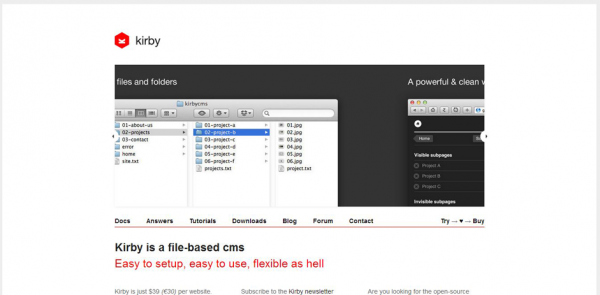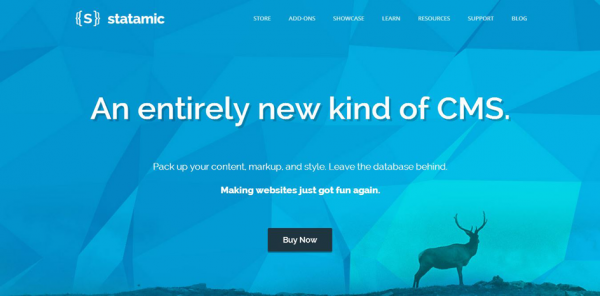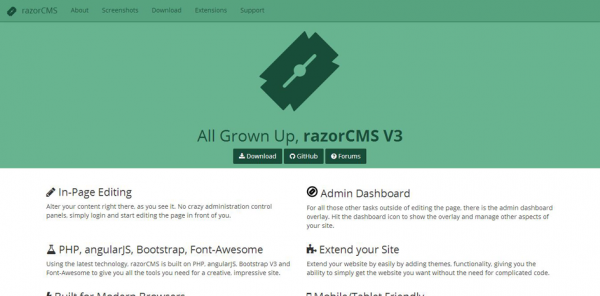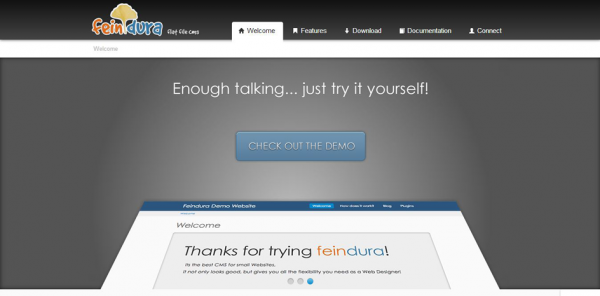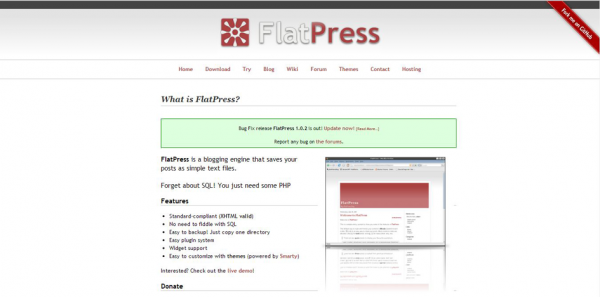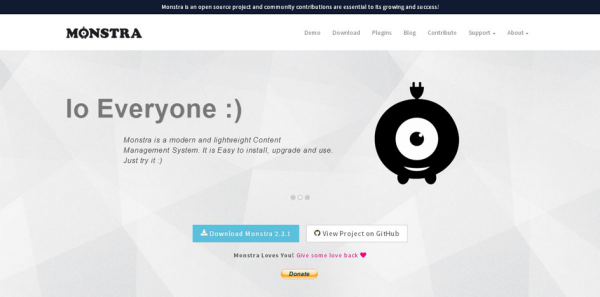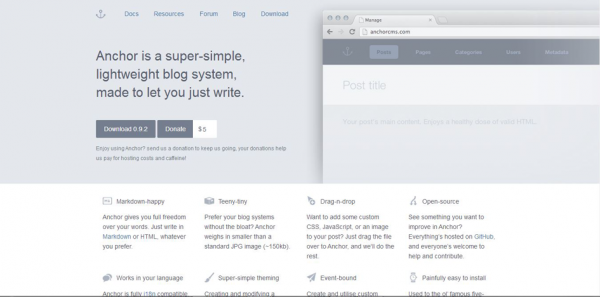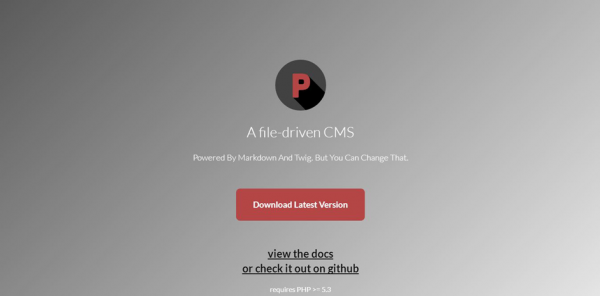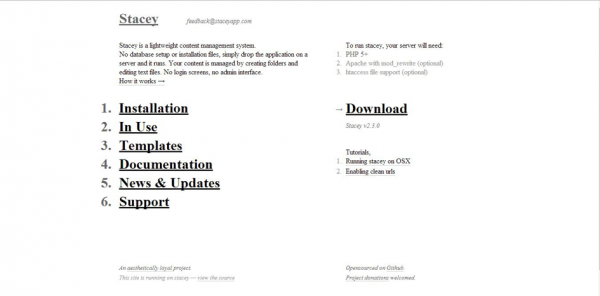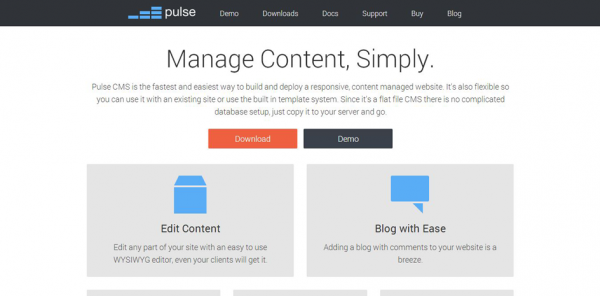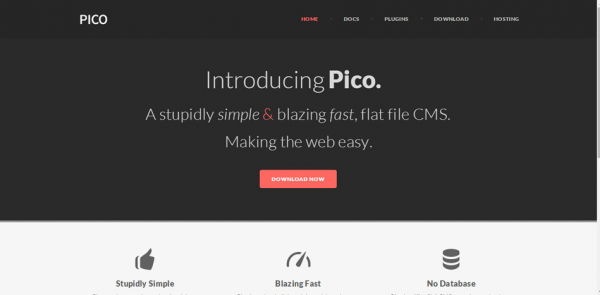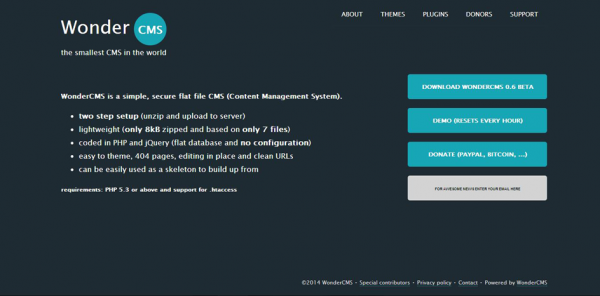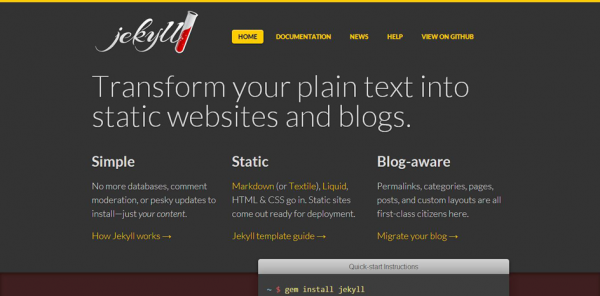We’ve reviewed the best of them here and over here and also looked at lesser-known but still worthy applications. Over the years we’ve seen how WordPress, once a simple blog platform, came to dominate and entrench itself as the most popular CMS, now powering a fifth of allwebsites globally.
1. Kirby
Kirby is one of the better known names in this list. It is also well-documented and has a solid user base. Kirby is a true file-based CMS that uses Markdown syntax and jQuery-inspired API. It organizes content by folders, and these can be synced with Dropbox. You can run Kirby on any host that has PHP 5.2, Linux and Apache.
License: Paid $39 per website / Free-trial option available
2. Statamic
Statamic is another of the more established ones. It also runs on PHP and creates static and dynamic websites. It uses YAML for content types, config files, layout and templates. It comes with a WYSIWYG editor, a client-friendly control panel, and built-in caching.
License: Paid $29/site for personal and $99/site for professional use.
3. razorCMS
RazorCMS runs on PHP and angularJS. It loads faster than other systems due to its smaller core. It simplifies admin tasks via in-page WYSIWYG editing plugins or “blades.” It is optimized for SEO, site-crawling, and display on mobile devices.
License: Open source
4. Feindura
Feindura targets small and medium websites. It has an easy-to-use interface for beginner programmers. It includes a MooTools-based interface, a WYSIWYG editor, and URL editing function through mod_rewrite. A multi-language backend and a backup utility are also available.
License: Open source
5. Flatpress
Flatpress is a standards compliant (XHTML valid) flat-file blogging engine. It has a simple and uncluttered interface which makes designing websites easier. It is extensible by enabling widgets and plugins, such as Tiny MCE and Akismet. Its default editor uses BBCode, which is often applied in forums and message boards.
License: Open source
6. Monstra
Monstra is a very lightweight (~150kb) CMS. It reduces HTML, CSS and .js files to payload size and lower HTTP round trips – causing the pages to load faster. Its features include mobile responsiveness, multiple page administrators and multi-level security for websites. It lets you add plugins to enable WYSIWYG editors, videos, RSS and more.
License: Open source
7. Anchor
Another lightweight self-hosted blogging engine is called Anchor. Its core promise is to keep the writing process as simple as possible. It uses Markdown or HTML and is compatible with Ruby I18n (shorthand for internationalization). The post images, Javascript and CSS can be customized using drag-and-drop for easier publishing.
License: Open source
8. Phile
Phile is another file-based CMS powered by PHP (5.3 and up). The system’s services – such as metadata, parser, cache, and template engine – can be tailor-fit to the users’ needs. The default settings are Markdown and Twig (for templating). Plugins for Youtube, RSS, and analytics are also available.
License: Open source
9. CMSimple
Despite its name, CMSimple is not very simple or plain. CMSimple is packed with many services, even without the database. It saves time by automatically backing up files upon log out. It also includes secure “wwwaut” log in, multiple language sub-sites for user and site maintenance, templating themes, and integrated plugin managers.
License: Open source
10. Stacey
Like the other flat-file CMS applications, Stacey also runs on PHP (5 or newer). The HTML files are edited in the same language (HTML vanilla with variable system) and templates are customizable with HTML or CSS.
License: Open source
11. Pulse
Pulse is designed for small websites. It has a user-friendly interface and can be turned over to other users who have no technical experience. It comes with form-builders, a WYSIWYG editor, traffic stats and one-click backup process.
License: Paid. Pricing options are $29 per website and $75 for five domains. / Trial version is available.
12. Pico
Like many in this list, Pico uses Markdown formatting. It has Twig as its templating processor, as well as a built-in plugin system. Its available plugins include authentication, OpenGraph, Sitemap, and RSS. It needs PHP 5.2.4+ to run.
License: Open source
13. WonderCMS
Dubbed as the smallest CMS, a zipped WonderCMS file is only 10kb. This makes the pages load ultra-fast. But for its tiny size, it has features other CMS have in this category, such as SEO-optimized settings, editing-from-mobile function, a WYSIWYG editor, easy theming, clean URLs option, and protected login access. No wonder it’s called WonderCMS.
License: Open source
14. Jekyll
Jekyll is not a flat-file CMS per se, but a static site generator. It converts raw text files (Markdown, Textile or Liquid) into a ready-to-publish website, removing unnecessary time and effort from cross-scripting. It includes a built-in development server to preview sites locally. It can run on Ruby, RubyGems, Linux, Unix or Mac OSX. Jekyll powers GitHub Pages, a free hosting service by the GitHub repository.
License: Open source
15. Ghost
Ghost is, strictly speaking, not flat-file but a CMS powered by SQLite database and Node.js. However, it’s often mentioned together with the true flat file CMS’s because it uses flat files to store data. Aside from a brilliant two-panel Markdown + live preview editor, Ghost offers a very simple blogging Markdown interface, beautiful themes, and a widget system reminiscent of the early versions of WordPress. It’s not surprising, since Ghost grew out of the WordPress project. It may yet become the closest challenger to WordPress.



